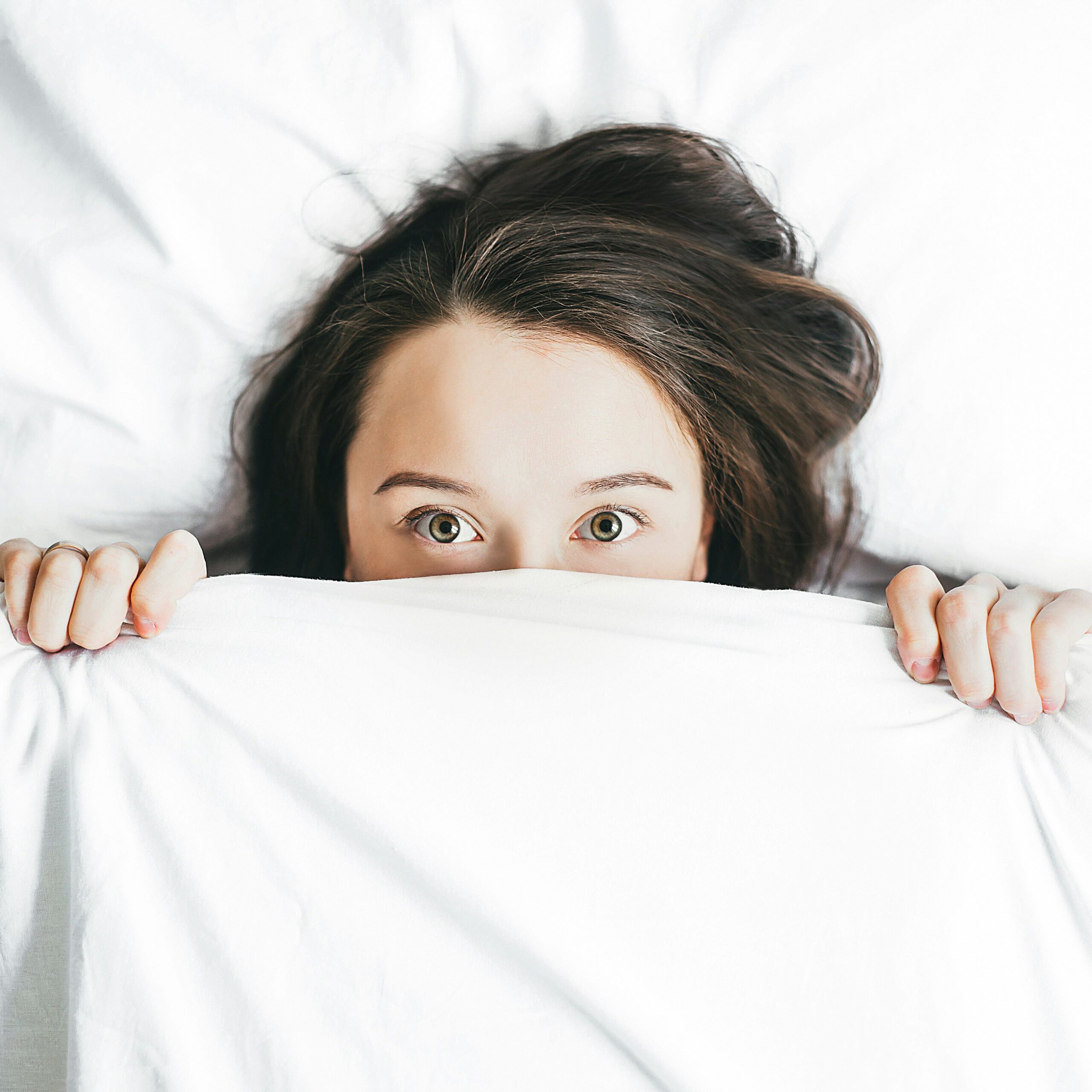Let’s talk about something that silently ruins our days, our moods, and even our health: insomnia.
It’s 2 a.m. You’re lying there, eyes wide open, mind spinning through tomorrow’s tasks, last week’s awkward moment, and the random to-do list you swore you’d finish earlier. You glance at the clock — and the stress multiplies: “If I fall asleep now, I’ll get 4 hours… 3 hours…”
You’re not alone. In fact, around 1 in 3 adults struggles with insomnia at least once in their lives. Some battle it for a few nights. Others, for weeks or even months. Some people, like my old neighbor Janet, live with chronic insomnia for years before they find relief.
But here’s the good news: you don’t have to live like this forever. Insomnia is treatable. And often, the best solutions are surprisingly simple.
This guide will show you how to break free from insomnia, step by step, with practical tools you can start using tonight.
⸻
What Is Insomnia, Really?
Insomnia isn’t just a “bad night’s sleep.” It’s a condition where sleep trouble happens at least three nights a week, sometimes for months. It shows up in a few frustrating ways:
• You can’t fall asleep, no matter how tired you are.
• You wake up often and struggle to fall back asleep.
• You wake up way too early, unable to snooze again.
• Your days are a mess — you feel tired, cranky, foggy, or even sick.
For some people, insomnia is short-term, triggered by stress, jet lag, or life changes. For others, it becomes chronic, tangled up with health conditions, mental health struggles, or bad sleep habits that are hard to break.
⸻
Why Should You Care?
Poor sleep isn’t just annoying. It’s linked to:
• Low energy & brain fog
• Anxiety and depression
• Weight gain & hormone imbalance
• Weaker immunity
• Higher risk of chronic diseases like heart disease & diabetes
Good sleep hygiene and practical insomnia solutions aren’t luxuries — they’re your secret weapon for feeling like yourself again.
⸻
Common Causes of Insomnia
Let’s break down some usual suspects that might be robbing you of your rest:
✅ Stress & worry: Money, work, relationships, health — any stress can mess with sleep.
✅ Poor sleep habits: Irregular bedtimes, screens before bed, uncomfortable sleep spaces.
✅ Diet: Too much caffeine, big meals late at night, alcohol before bed.
✅ Pain & medical conditions: Chronic pain, restless leg syndrome, sleep apnea, menopause.
✅ Medications: Some antidepressants, steroids, or stimulants can keep you wired.
✅ Mental health conditions: Anxiety and depression love to show up at bedtime.
⸻
Case Story: Meet Janet
Let’s circle back to Janet. For years, she blamed her insomnia on stress — raising kids, paying bills, running her small business. But even when life calmed down, the sleepless nights stuck.
She tried everything: warm milk, expensive pillows, herbal teas. Nothing worked — until she tackled the root cause: a mix of poor sleep habits and untreated anxiety.
With the help of her doctor, some practical changes, and a simple bedtime routine, Janet finally started sleeping through the night — naturally.
The lesson? There’s no one-size-fits-all cure, but small changes add up.
⸻
15+ Insomnia Solutions That Actually Work
Ready for the good stuff? Here’s your toolbox for beating insomnia — starting tonight.
⸻
✅ 1. Respect Your Sleep Schedule
Go to bed and wake up at the same time every day, even weekends. This keeps your body’s internal clock steady.
If you sleep in on Sunday, falling asleep Sunday night becomes harder — and Monday hits you like a truck. Keep it consistent.
⸻
✅ 2. Build a Wind-Down Routine
Ever try to sleep right after watching an intense thriller or answering late-night work emails? Not helpful.
Your mind needs a buffer zone. Try a 30- to 60-minute bedtime routine:
• Dim the lights
• Read a calming book (no thrillers)
• Take a warm shower or bath
• Journal your worries away
• Listen to soothing music
⸻
✅ 3. Make Your Bedroom a Sleep Zone
Your bedroom should say one thing: “Sleep lives here.”
• Cool: around 60–67°F (15–19°C)
• Dark: blackout curtains or an eye mask
• Quiet: earplugs or a white noise machine
• Comfy: a supportive mattress & pillow
⸻
✅ 4. Kick Out the Screens
Phones, tablets, TVs — they blast blue light that blocks melatonin, your sleep hormone.
👉 Solution: Power down 30–60 minutes before bed. Use “night mode” if you must scroll — or better yet, don’t.
⸻
✅ 5. Cut Caffeine Earlier Than You Think
Think coffee at 4 p.m. doesn’t matter? Think again. Caffeine can linger for up to 10 hours.
✅ Best practice: No caffeine after 2 p.m. Watch sneaky sources like tea, chocolate, energy drinks, or certain meds.
⸻
✅ 6. Don’t Rely on Alcohol
Sure, a glass of wine feels relaxing. But alcohol messes with your REM sleep — the deep stage that helps your brain reboot.
If you drink, do it earlier in the evening, and don’t rely on booze as a sleep crutch.
⸻
✅ 7. Mind Your Meals
Big, spicy, or greasy dinners can keep your body busy digesting while you’re trying to sleep.
✅ Finish heavy meals at least 2–3 hours before bed. Need a snack? Try a banana, handful of almonds, or a small bowl of oatmeal — foods that gently boost melatonin.
⸻
✅ 8. Keep Naps Short & Smart
Long naps can sabotage nighttime sleep. If you need one, follow the “power nap” rule:
• Keep it under 30 minutes
• Nap before 3 p.m.
⸻
✅ 9. Move Your Body
Regular exercise is magic for sleep — but timing matters.
• Aim for 30 minutes of moderate movement most days.
• Try to finish workouts at least 2–3 hours before bed.
Fun fact: Even a daily walk helps reset your sleep-wake cycle.
⸻
✅ 10. Calm a Busy Mind
Anxiety and insomnia love to dance together. Break the cycle with relaxation tricks:
• Deep breathing: 4-7-8 technique (inhale 4 sec, hold 7, exhale 8)
• Body scan: Tense & release each muscle, head to toe
• Guided meditation: Apps like Calm, Insight Timer, or Headspace
⸻
✅ 11. Schedule Worry Time
If your mind races at bedtime, try this: set a “worry appointment” earlier in the evening. Spend 10–15 minutes jotting down your worries and possible solutions.
When your brain tries to rehash them at 2 a.m., remind yourself: “I already handled that.”
⸻
✅ 12. Try CBT-I: The Gold Standard
Cognitive Behavioral Therapy for Insomnia (CBT-I) is the most evidence-backed treatment for chronic insomnia.
It helps you spot the thoughts and behaviors that sabotage sleep — then teaches you healthier patterns. Studies show CBT-I works better than sleeping pills for many people — with lasting results.
Ask your doctor for a referral, or look for digital CBT-I programs if therapy isn’t accessible.
⸻
✅ 13. Consider Natural Sleep Aids — Carefully
Some people find relief with supplements like:
• Melatonin: Helps reset your sleep cycle, especially for jet lag.
• Magnesium: May calm the nervous system.
• Valerian root: Some find it mildly sedating.
Always check with your doctor first — especially if you’re taking other meds.
⸻
✅ 14. Upgrade Your Bedding
Is your pillow flat and ancient? Is your mattress older than 8–10 years? A lumpy bed can cause tossing and turning.
Invest in a mattress and pillow that support your sleep style. Sometimes better sleep starts with better gear.
⸻
✅ 15. Be Kind to Yourself
No fix works overnight. If you slip up and stay up late scrolling memes, don’t beat yourself up. Progress is progress. Consistency is what matters.
⸻
Bonus: Medical Help for Insomnia
When lifestyle changes aren’t enough, it’s smart — not weak — to get help.
Your doctor might check for underlying conditions like:
• Sleep apnea: A breathing disorder that disrupts sleep.
• Restless legs syndrome: Uncomfortable leg sensations that worsen at night.
• Depression or anxiety: Both love to hijack sleep.
Medical options can include short-term sleep aids, but these work best as temporary helpers while you fix the root causes.
⸻
Insomnia Myths: Don’t Fall for These
❌ Myth: “I’ll catch up on sleep this weekend.”
Truth: Lost sleep doesn’t “bank.” Consistent sleep is healthier.
❌ Myth: “A nightcap helps you sleep.”
Truth: Alcohol might knock you out but ruins deep sleep later.
❌ Myth: “More sleep is always better.”
Truth: Adults need 7–9 hours — too much can actually make you feel groggy.
⸻
Your First Step Starts Tonight
You don’t have to fix insomnia in one night — but you can make a tiny shift tonight:
• Put your phone in another room.
• Read a few pages of a book.
• Journal tomorrow’s to-do list so your brain doesn’t panic.
Tiny habit. Big impact. Keep stacking the small changes — your future, well-rested self will thank you.
⸻
Back to Janet — And You
Remember Janet? When she fixed her insomnia, she didn’t do it with fancy sleep sprays or expensive gadgets. She did it by learning her triggers, sticking to a simple routine, and asking for help when she needed it.
If she can do it — so can you.
⸻
Let’s Talk: What’s Keeping You Up?
What’s your biggest sleep struggle? What’s helped you drift off naturally? Share your thoughts below — your story could help someone else finally rest easy too.
Here’s to deep sleep, calm nights, and brighter days ahead. 🌙✨
⸻
Suggested Meta Description
“Struggling with insomnia? Discover 15+ practical insomnia solutions that actually work. Reset your sleep cycle, calm your mind, and wake up refreshed.”


